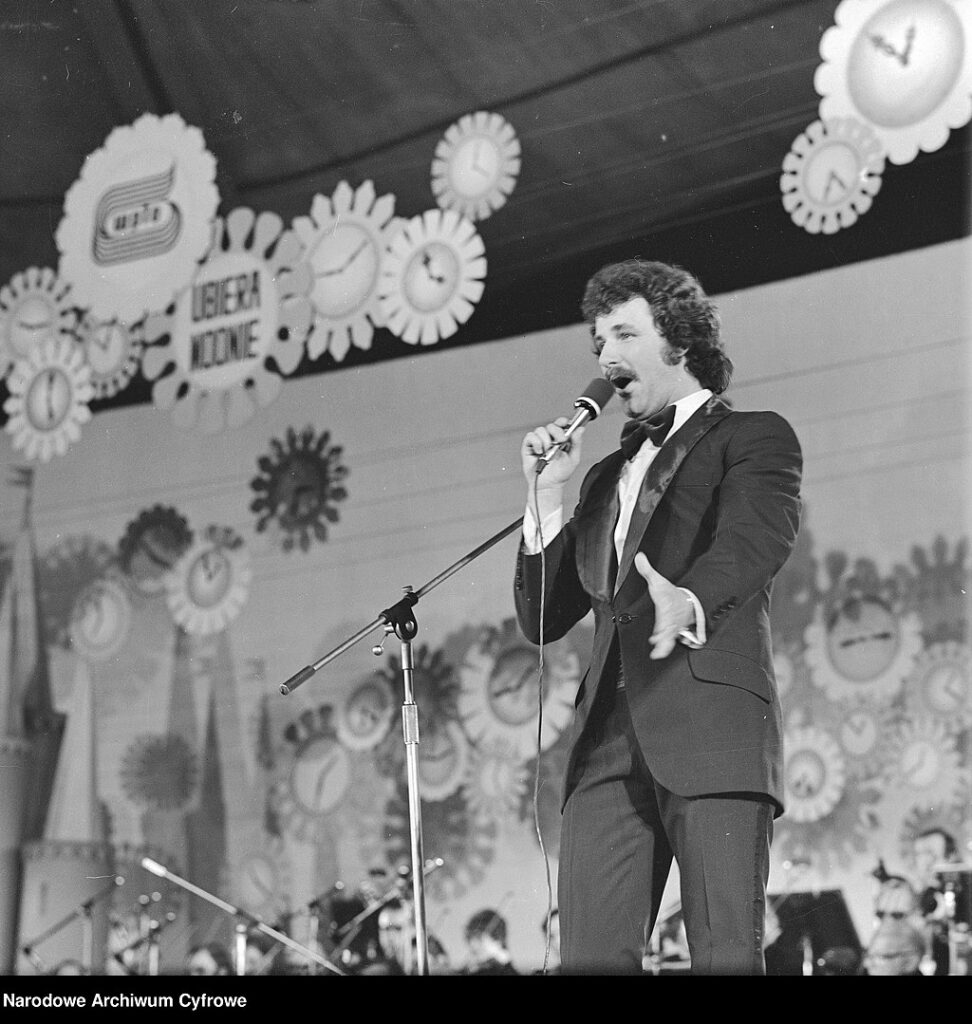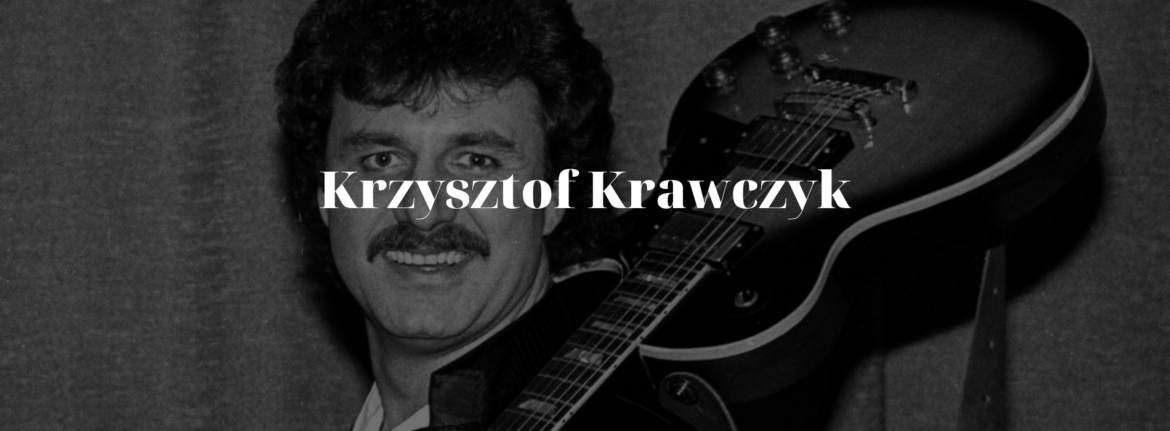Krzysztof Krawczyk, born on September 8, 1946, in Katowice, was one of the most recognisable and versatile Polish vocalists, as well as a guitarist and composer. His distinctive baritone voice and ability to interpret various musical genres made him an icon of the Polish music scene.
Early Life and the Beginnings of a Career
Krawczyk grew up in an artistic family; his parents, January and Lucyna Krawczyk, were actors and opera singers. From a young age, he was immersed in music, attending music schools in Poznań and Łódź. In 1963, he co-founded the band Trubadurzy, which quickly gained popularity with hits such as Znamy się tylko z widzenia (We Only Know Each Other by Sight) and Kasia. The group combined rock and roll elements with Polish folk music, setting them apart from other bands of the time. They frequently performed at song festivals, earning widespread acclaim.
Solo Career and International Experiences
In 1973, Krawczyk decided to pursue a solo career. His early albums, such as Byłaś mi nadzieją (You Were My Hope), brought him immense popularity. Over the years, he experimented with different genres, including pop, country, tango, and even disco. In 1976, he briefly rejoined Trubadurzy, recording an album with them before leaving the band permanently.
During the 1970s, Krawczyk performed extensively abroad, particularly in the Soviet Union and East Germany. In 1978, he embarked on his first tour in the United States. A year later, discouraged by censorship and artistic restrictions in Poland, he emigrated to the U.S. There, he performed mainly for Polish-American audiences in Chicago, Las Vegas, and Indianapolis. He also recorded the album From a Different Place under the pseudonym Krystof, but it failed to achieve significant commercial success.


Return to Poland and Continued Career
Before returning to Poland, Krawczyk toured Canada, performing for the Polish diaspora. In the mid-1980s, he resumed his music career in Poland, recording solo material and collaborating with other artists. He frequently performed intimate concerts in restaurants and health resorts.
In 1985, he partnered with satirist Bohdan Smoleń, recording humorous songs such as Mężczyzna po czterdziestce (A Man Over Forty). During this period, he also appeared on television, won several audience awards, and participated in various music festivals. However, in 1988, he suffered a serious car accident, colliding with a tree. The injuries were severe—he had a fractured jaw, broken cheekbones, a shattered knee, and a dislocated hip. During his recovery, he befriended surgeon Maciej Świtoński, who operated on him and later became a songwriter for some of his works.
Artistic Versatility and Musical Collaborations
Krawczyk was an exceptionally versatile artist, adapting to multiple musical styles. His repertoire included ballads, pop songs, and tracks influenced by country and rhythm and blues. He collaborated with many renowned musicians, including Goran Bregović, with whom he recorded the hit Mój przyjacielu (My Friend), and Edyta Bartosiewicz, with whom he sang Trudno tak (It’s Hard Like This). His openness to various genres and willingness to experiment made his discography diverse and unpredictable.
Personal Life and Spiritual Journey
Krawczyk’s personal life was tumultuous and eventful. He was married three times. His first wife, Grażyna Adamus, was his high school sweetheart. They were in an informal relationship for about seven years before marrying. However, during the marriage, he had an affair with Halina Żytkowiak. In the early 1970s, he divorced Adamus and married Żytkowiak in a Russian Orthodox ceremony in the Soviet Union. Together, they had a son, Krzysztof Junior. Their marriage was stormy, full of conflicts and breakups.
After 11 years, Krawczyk separated from Żytkowiak, fell into depression, and struggled with addiction to drugs and medication. In 1982, he met his third wife, Ewa, and they married in 1987 after his first marriage was annulled. They remained together until his death.
His spiritual journey was just as turbulent. He lost his faith in 1964 after the death of his father but rediscovered it in 1982 under the influence of his third wife, who encouraged him to attend an Easter mass. The 1988 car accident further strengthened his religious beliefs, though it had lasting consequences for his son, Krzysztof Junior.
Legacy and Influence on Polish Culture
Krzysztof Krawczyk left behind an immense artistic legacy, comprising over 100 albums and countless hits that became an integral part of Polish popular music. Songs like Parostatek (Paddle Steamer), Bo jesteś ty (Because There’s You), and Jak minął dzień (How Was Your Day) continue to be cherished and performed by new generations of artists.
The media often referred to him as a „legend of Polish music,” and in a national ranking of beloved figures conducted by Fakt, he ranked fifth. His influence on Polish pop culture remains undeniable—his music continues to resonate with listeners decades after its release, proving that Krawczyk was not just an artist of his time, but a timeless figure in Polish music.
Krawczyk passed away on April 5, 2021, in Łódź after a brief hospitalisation due to COVID-19 complications. However, the official cause of death was related to pre-existing health conditions. His contributions to Polish music remain unparalleled, and his songs still accompany Poles in their daily lives, reminding them of his extraordinary talent and passion.
